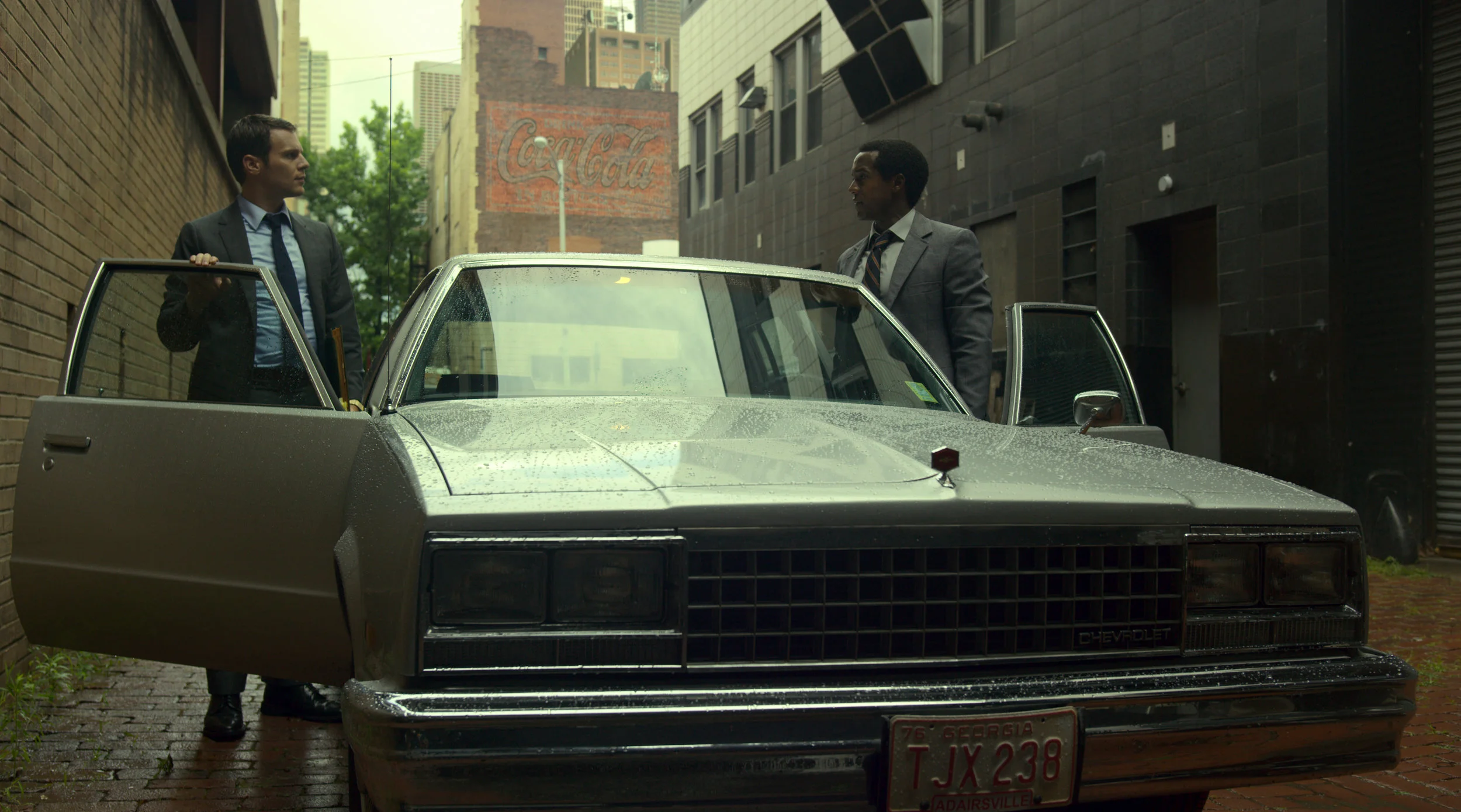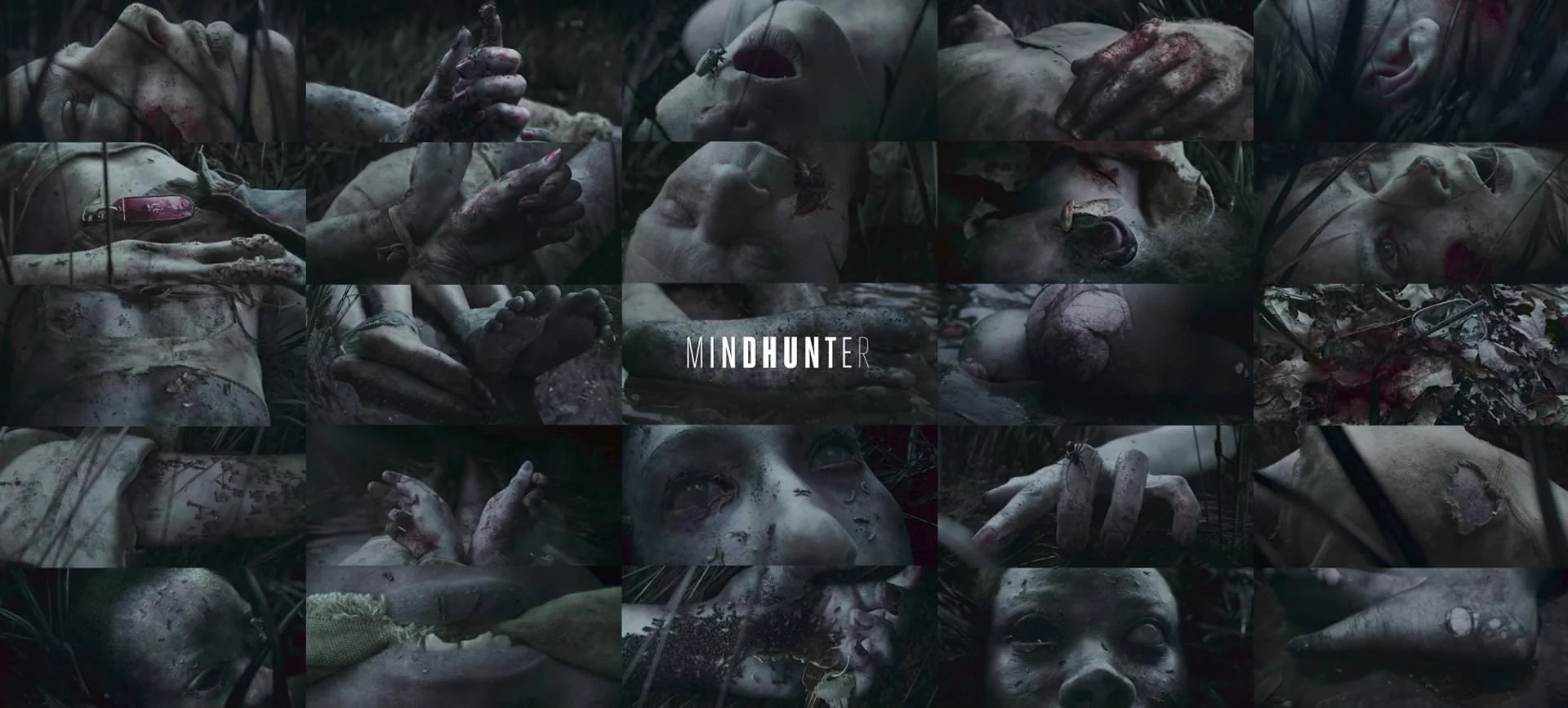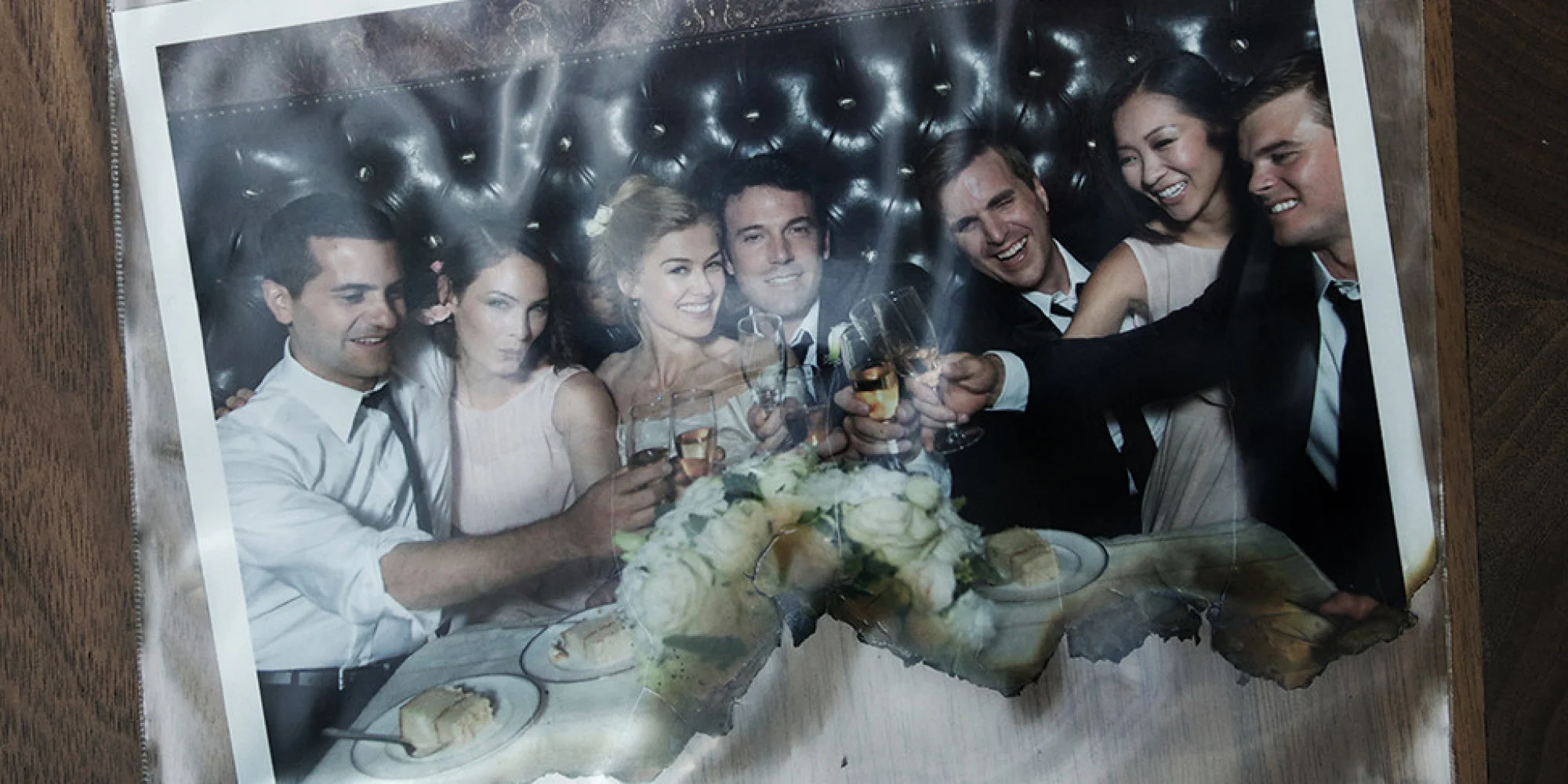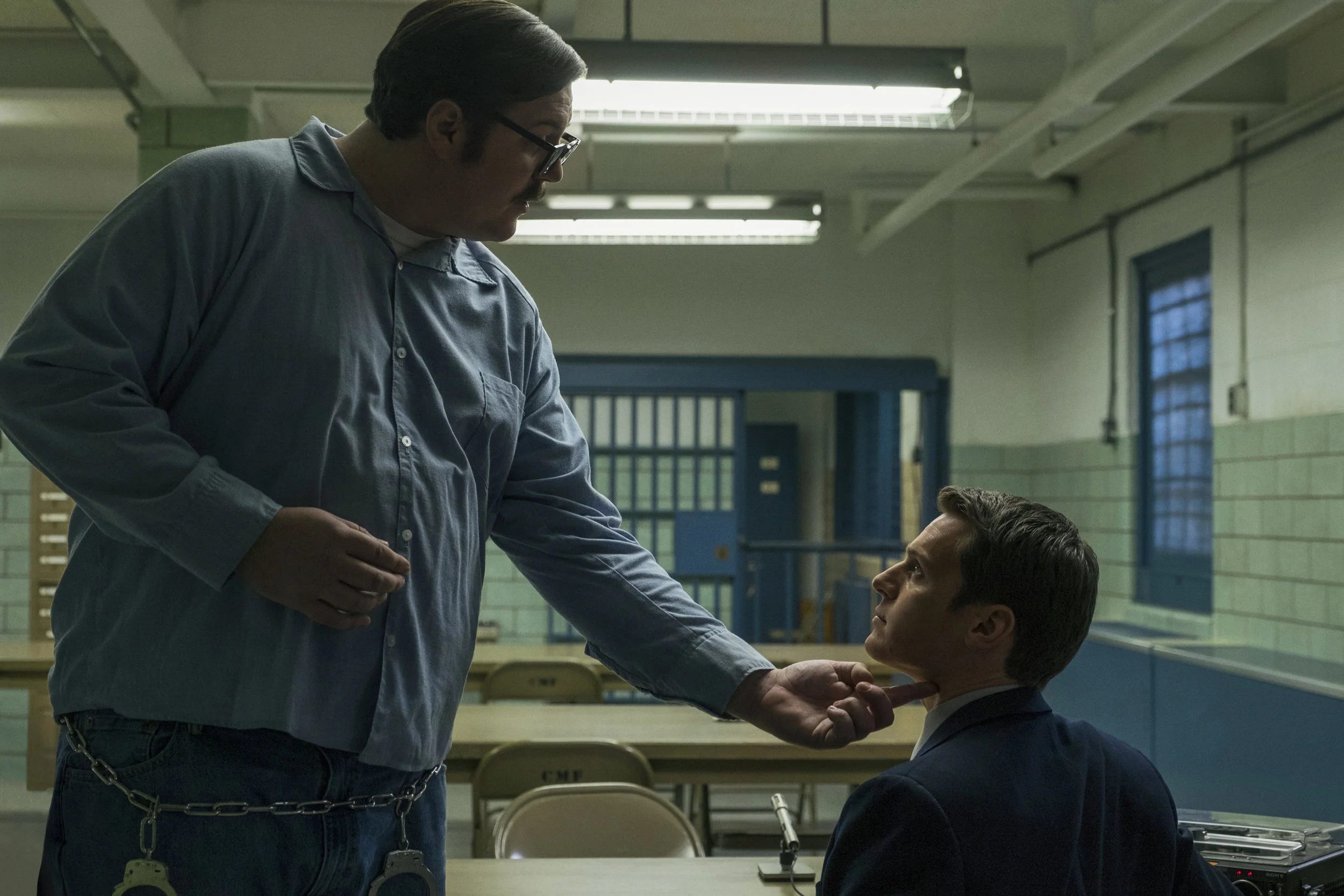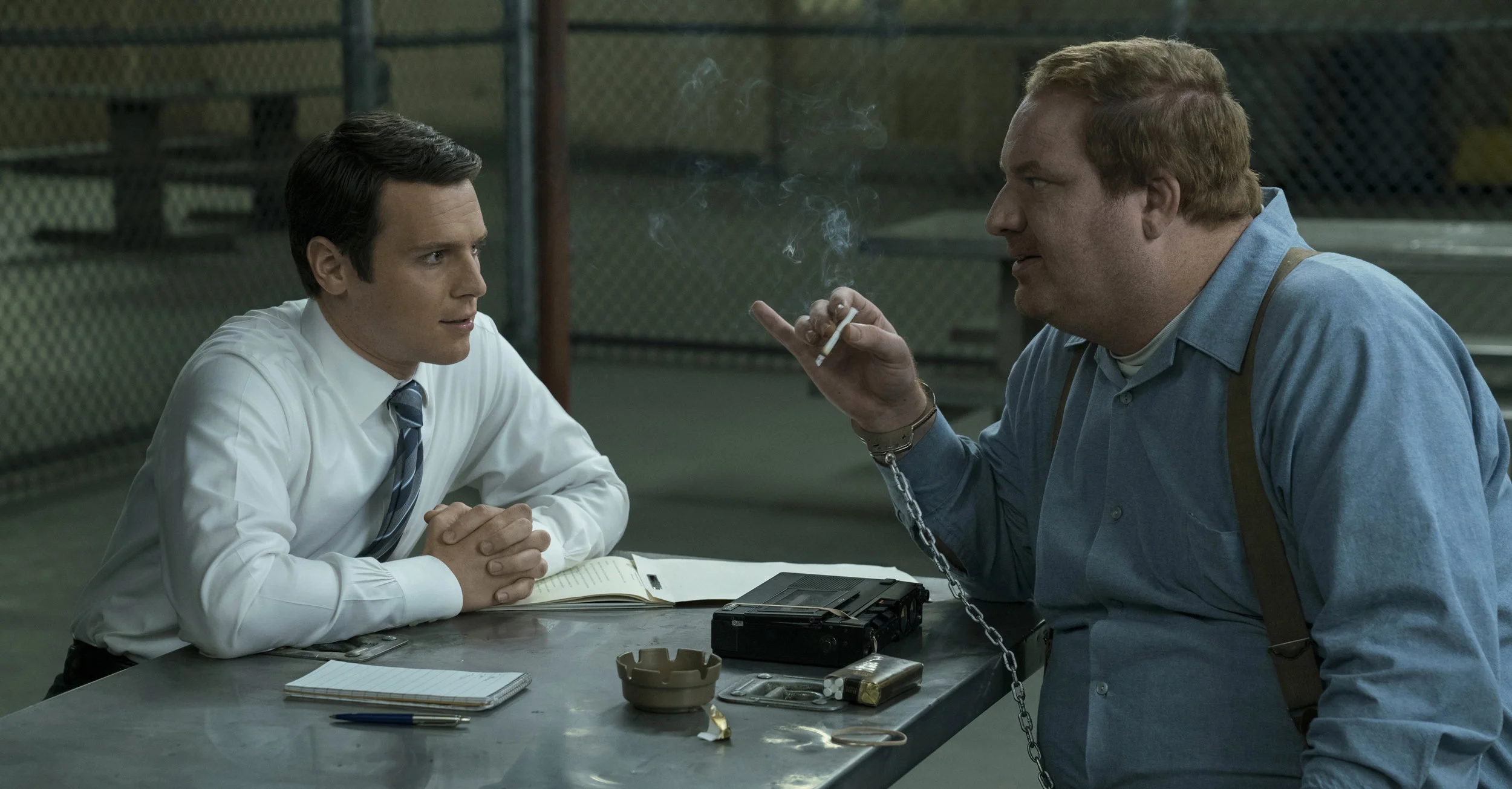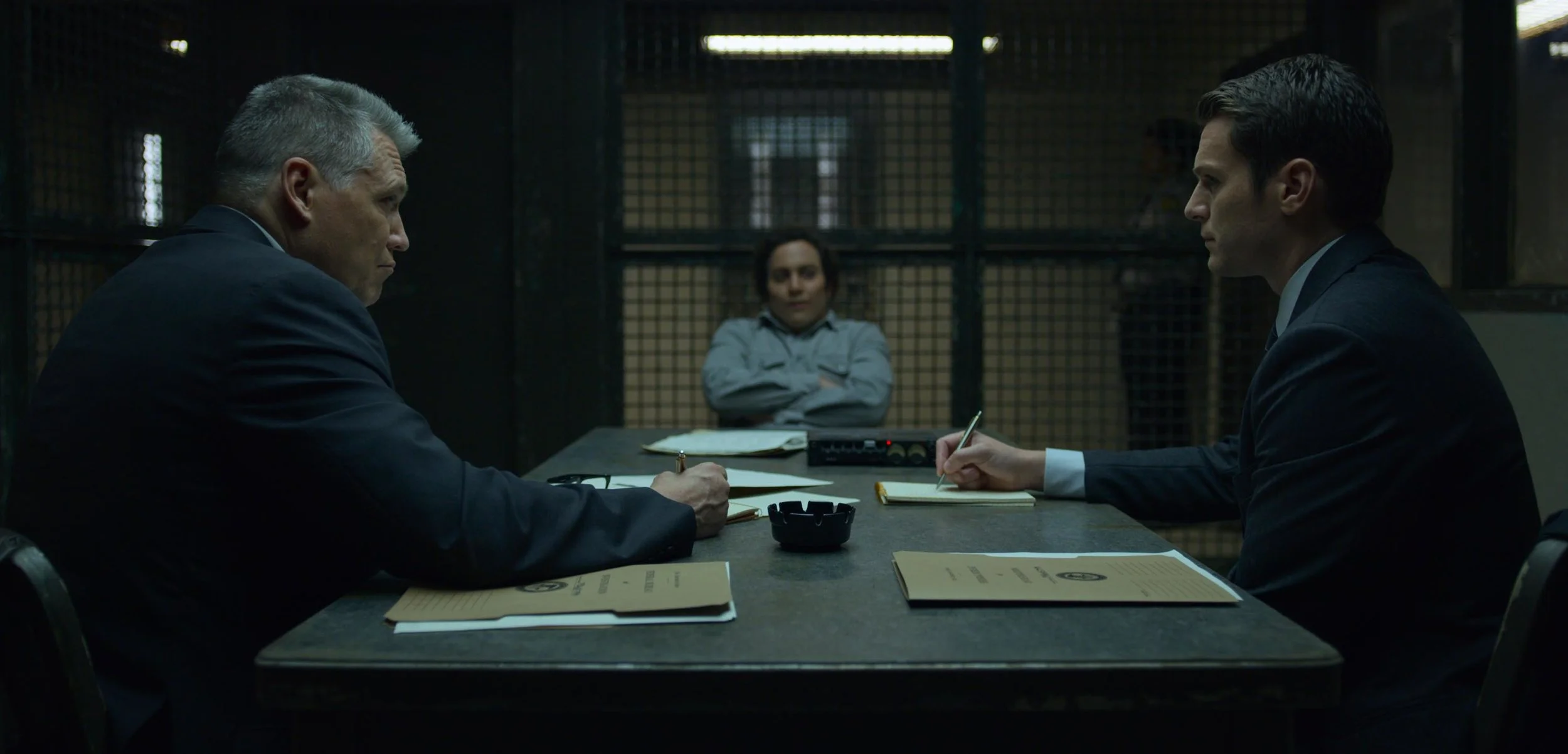Jason Hill
Jason Hill is the hypnotic composer, producer, recording artist, songwriter, and multi-instrumentalist, admired for his arcane musical stylings and idiosyncratic approach. He is the frontman and thought leader of controversial post-punk band, Louis XIV, member of alternative supergroup, Vicky Cryer, and founder of The Department of Recording and Power, a voluminous vintage studio in Glendale, California. A contrarian musical nomad, Jason has thrived in myriad roles within the music business, working with David Bowie, The Killers, Robbie Williams, New York Dolls, Jet, Sky Ferreira, Macy Gray, The Virgins, Richard Butler of The Psychedelic Furs, and many others. After being tapped to fulfill the official trailer and teaser for Gone Girl, legendary director, David Fincher invited Jason to conjure a musical macrocosm for Netflix’s gripping criminal psychology thriller series, Mindhunter. Over two critically acclaimed seasons, Jason’s score negotiates the liminal space between masks of normalcy and unbridled savagery, masterfully evoking unseen traumas. In our sprawling discussion, Jason details his lifelong rejection of sonic mores and how he made Netflix history with his haunting re-imagining of the Mindhunter theme for the season two finale.
Source: Victoria Smith
Before becoming a composer for media, you explored many artistic avenues in the music industry — Louis XIV, Vicky Cryer, and beyond. Could you describe some of your most fulfilling pursuits before you changed your professional trajectory? What are the advantages of having a strong pre-existing relationship to storytelling through music?
Well, it’s an interesting thought about the storytelling aspect. With songwriting, you’re trying to tell these mini stories, but I’ve had many, many fulfilling artistic projects. Louis XIV, I absolutely loved doing, and in fact, for the first time in 10 years, we’re in the middle of making another record. We’ve got a few songs so far, and it’s fun to come back around to it after we went pretty hard, toured the world, and made records. “The Best Little Secrets are Kept” is one of the records I’m very, very proud of. I just loved making it.
Looking back, I lived in this little, tiny…it wasn’t even an apartment, and it overlooked a Shell gas station. It didn’t have a shower or anything. I would literally connect a hose to the faucet and drag it out on the balcony that overlooked the gas station. In the middle of the night, I would hose myself to take a shower unless I was staying at girlfriends’ houses. I had a futon in the corner, but the rest of the place was just my recording gear. I was broke, but I was happy to be making music. That’s where all the Louis XIV material came about. It was essentially from those late nights, and that was a really great experience.
I’ve actually had so many great experiences related to music. There were times when me and my past bandmates moved to a place called Jamul up in the mountains, about an hour outside of downtown San Diego. We lived in this old adobe house on forty-six acres that an artist built. That was one of the places where we learned to sing harmonies and write together. That was also where I really learned how to record. We just had reel-to-reels, and I figured out how to do it. I’ve always lived in pursuit of trying to figure out how to do things by myself. If I signed a record deal, instead of giving another producer a bunch of money in the studio to make a record, it was like, “No. Let’s just buy a bunch of gear ourselves, and now, we can make records for the rest of our lives.” That’s why I have the arsenal of stuff I have to this day.
There are so many incarnations of my life in music, starting from the moment I first fell in love with it. I remember as a little kid; I was actually plagued by these things in my head, which later I learned were melodies. It would drive me nuts. To be honest with you, as a nine-year-old kid, I would have all these tiny, weird symphonies playing in my mind, but I didn’t know what they were until I started figuring out what music really was. Of course, I knew what music “was,” and I even wrote a song around age five, but at that point, I didn’t know how to make these melodies I was hearing come to life. It was like, “How do I get this out of my head and into the cosmos? How do I play it on a guitar or a piano?”. Oh god, it was so tough. That was a thing like, “I gotta figure this out because otherwise, it’s going to kill me.”
I think it’s always been a pursuit of the fog. It’s like a foggy mirror after a hot shower. Little by little, the fog comes clear, and you are able to see your reflection. That’s what music has been, for me, for my entire life, and now, I just have a lot more control over it. That said, it’s still this elusive thing, and I love that elusive thing. I love the feeling of not knowing, so I still dance in that realm.
Taking place in the late ’70s through the early ’80s, Mindhunter charts the origin of the FBI’s Behavioral Science Unit and the practice of criminal profiling. Together, agents, Holden Ford and Bill Tench, alongside psychologist, Wendy Carr interview and analyze incarcerated serial killers across the nation, applying this groundbreaking knowledge to solve cases. In your collaboration with David Fincher, what concepts and musical references does he bring to the table, and how does that inform your approach?
[David Fincher] is so articulate. He’s a brilliant man. I can’t stress that enough, really. He gives you these prompts, but they’re rarely specific. Nowhere in there is he saying, “Do this,” or “Make this piece exactly like this.” He just gives you these open-ended questions.
This time around, one of his prompts was ‘the death of disco’ and what that sounded like. It was a very interesting thing to consider when you think of our score and where it ended up. How does finding out what the death of disco sounds like translate to season two of Mindhunter? I still don’t know, but it led me in a place of trying to figure it out, which was a bit of a mind fuck.
Yeah, disco ended, but disco continued on. You think about the guys that were making masterful disco records like the Bee Gees, Chic, Nile Rodgers. They went on to produce. The Bee Gees wrote “Islands in the Stream” for Dolly Parton and Kenny Rogers, and worked on “Guilty” for Barbra Streisand. Nile Rodgers did Madonna’s “Like a Virgin.” Disco didn’t die; it just morphed. It led to things like punk rock, new wave, and then you think about black music during that time period, it means so many things!
You can take all that in, try to figure it out, and translate it in a million different ways, but what does it really mean and how does it relate to the actual score? That’s a whole different story. That’s just one example of the pursuits Fincher gave me, and I love these sorts of pursuits because it gets things percolating in the brain. Then you start trying to answer these crazy questions. Sometimes, he can be specific, but he always says maybe this, or maybe that; he’s always open to when something comes about.
There’s a piece called “A Big Pool” — that’s what I call it. Nobody would know that yet because the score hasn’t been released or anything, but it’s definitely in the scene when [Agent Bill] Tench is going to the Otero house — the one where B.T.K. had gone in. It’s this really long scene where they go down to the basement, and they talk about the girl hanging. Ugh, it’s a horribly dark scene, but incredibly shot and well done. [The cue] has only two melodic structures for the whole thing. I made those two instruments with several different sounds, and I think I put it together in a very weird, unique way, but it was one of those things where I did it very quickly, in like fifteen minutes. There’ll be other pieces that I work on for days and days and days, but this was a very fast one.
I remember I wasn’t even in a particularly good mood when I went into the studio and made it. That day just felt like I was going to work, and I don’t feel that very often, but when I do, it can be a bummer. That mood had nothing to do with Mindhunter, but I just wrote this bit fast and sent it off to Fincher. Almost instantly, he said, “That’s the sound of season two,” which was great. It was one of those reminders that you don’t always have to labor over something forever and ever. Then for other things, I would bring in big string sections and all these elaborate elements. A lot of the pieces that were really more about the death of disco didn’t make the score, but it led me to make other pieces that became the sound of the season. Fincher gives you these little ideas and jumping-off points, and it all leads you there.
In season one, I remember the first thing he said to me about the show was, “Here’s what I got. Think Bernard Herrmann in Psycho but without the ‘wrer, wrer, wrer, wrer’ of Psycho.” That led me down a path, but if you really listen to the score, Bernard Herrmann is in there — he really is, but he’s not. There’s nothing you hear in there that would make you go, “That sounds Bernard Herrmann-esque.”
There’s also a piece I just love at the beginning of season one. It only appears once when Holden’s driving down to see [Edmund] Kemper for the first time. He’s driving along the coast with his hand out the window, playing with the wind. That one piece hearkens in that world. Fincher led me there, and then I went somewhere else totally. I think we both know that he’s going to prompt me and I’ll end up somewhere else, but through these articulate little prompts, I’m able to find that place. He’s so great about allowing the creative people working on his shows and films to find their voice. He just helps you get there like a general might.
Can you elaborate on how the Mindhunter main titles theme came into existence? There’s something so engaging about those horrific flashes…
I remember when they had first told me about the flashes. You always see things in different incarnations as they’re being built, and at that point, Fincher was telling me things like, “Nobody’s getting it. Nobody understands what I’m trying to do.” There must have been somebody pushing back that didn’t get what he was going for, but he rifled through it, as he does, and it turned out incredible. It’s really fascinating to watch as things get sculpted, and with Fincher, that’s what you are constantly doing — watching the master sculpt. I was seeing the process between him, Kirk Baxter, and all the editors, Grant Surmi, and [Neil] Kellerhouse all helping to make that thing.
For the titles sequence, I wrote a number of ideas, but the one that actually made it in was done very quickly and very late at night after I’d gone out. I was working on a different sort of piece for the title sequence, but then me and my girl, Keely went out and had a couple of drinks. When we came home, I was just like, “Oh, let me go back into the studio for a little bit — just for 15 minutes.” She knows me, so she knew that meant like three hours. So, I just went in and spontaneously did part by part, one after the other, and it literally came to me like a gift. It was so quick! Realistically, it was probably an hour, but it was quick for such a thing to come about.
I barely remember doing it, but I remember there was some outboard gear that had some latency on what I was doing. It was sort of messing everything up because when I played a note, I wasn’t hearing it at first. I would play it down, and then it was like a slap back was actually the only thing I was hearing, but I liked what was happening. I just liked the feel of it, so I didn’t bother fixing it and kept playing with this weird delay on everything. It created this beautiful pulse and had this haunting feeling to it. Things were happening so quickly that I had just recorded it on the back end of something else I was working on and didn’t even realize it. So, I closed everything down, totally forgot about it, sent Fincher a bunch of different ideas for a title sequence, and then a week and a half later, I randomly found it. So, then I sent it to him.
A couple of weeks later, I go into a meeting with him, and they had cut it in the first temporary version. It didn’t have the flashes yet, but it basically had everything else. Although funny enough, it was the same thing you see with the tape machine, but David re-shot the whole thing because there were literally finger smudges on the reels. It was already great, and most people wouldn’t even notice, but he was fixated on it because he’s such a perfectionist in the most wonderful way. So, he re-filmed the whole thing, but back then, I saw the first incarnation with my title piece, and it was like, “Wow, amazing.” I was so happy they picked that one because it was one of those things that felt like a gift. I can look at it from the peripheral because I really don’t remember writing it. It was almost like it happened too easy.
After that, I went forth, and I brought in a quartet, drummers, and all sorts of stuff. I re-did things on it, added other things, and made a bigger version of it. At the end of the day, the version we hear is still exactly the mix from that late night — that’s the one that made it on the show. I probably worked for another two months on things that never made it in. There were some rad incarnations, but at the end of the day, it was like, “If it’s not broken, don’t fix it.” There was something magical about it from that first night.
It can be tough to know when something is truly finished. Like you were saying, you were able to make some other incredible versions of it, but ultimately, you had nailed the title sequence unbeknownst to you the first time. How do you know when to stop?
Yeah, completely. How do you know when to stop? That’s the hardest thing. It’s like that old adage, and I don’t know who said it first:” Art is never finished, it’s just abandoned.” At some point, you just have to let it go, and hopefully, you do that at a stage where it’s in a great spot because it can transform. One of my favorite things to do is go in, mute everything, pull all the faders down, and throw up a few tracks to listen to in isolation. Say you have forty tracks on something, and you pull everything down, and listen to three elements. It makes you go, “Wow, that’s a thing too.” It can be incredible, and it opens up.
You don’t want to be too precious about anything. I try to maintain the editing skill. I think it was John Lennon who said that the best thing he ever learned to do was to edit himself. I think there’s some truth to that — when you can look at things from the peripheral, and be able to say, “Is this great or does it need something more?” Not everything you do is going to be wonderful, but maybe you can do something better to get it there, or maybe something’s missing, or maybe you just need to simplify. Simplifying can be a good thing as well. Sometimes, it’s better to keep it to only three or four elements. The brain can’t function when we’re hearing all of these different things at once, so what are the three main things the brain can function on right now?
To really answer your question, it’s hard to say. At the end of the day, like with this title sequence, you finish, and you mix it down. It becomes this two-track stereo thing, and you listen to it. Yes, you can go back in and do another ten versions of it, but you have to be able to have perspective and go, “Even though I spent two months on it, and now, it seems like such a waste of time, that first one was better. There’s a certain charm to that one.” It happens all the time.
The second season largely focuses on the FBI’s investigation into the Atlanta Child Murders and alleged perpetrator, Wayne Williams. Could you explain the intention behind re-working the main titles theme sequence into a haunting choral arrangement for the season finale?
It was one of the last things I did, and I had the help of three girls I know that were sweet enough to entertain it. For one, they basically represented a boys choir. When I originally worked with Fincher on Gone Girl, I did the trailer and teaser, and I brought in a choir. I originally wanted to do a boys choir, but what could I do? I couldn’t put out an ad like ‘Musician seeking little boys.’ It seemed impossible to find a little boys choir. I just didn’t know how, but I thought maybe women could pretend to be a boys choir.
Back then, I was able to get these incredible singers to fake a boys choir for me, and I did the same thing with these women because I thought they would represent the dead children, you know? I wanted to find a good way to represent them, so David and I talked about it, and I just had this idea. I already had [the singers] working on a piece that’s in episode seven, where Holden’s chasing with the cross. It’s a big, somewhat action-like sequence, and I brought in the choir for the first time for that.
When I had them there, I said, “You know, I have this idea. Why don’t we try to lay out the first act?.” The title sequence has three acts, so I thought, “Let’s do just do this first part really quick for Fincher. I want to send it to him.” They were nice enough to entertain me and sing the first part of it, and then we sent it off. Instantly, he responded and said, “Yes, I love it.”
My thought was, once we found Wayne [Williams], I wanted the choirs to come in and start changing out some of the pieces that are a part of the Atlanta scenes. There’s this one piece called “Witness” where I have this bending sound that David and I started calling ‘The Birds of Prey.’ A lot of what I was fascinated with this season had to do with creating an unsettling bending between notes. One of the things that was always in the back of my mind was, “This season’s going to be a lot about bending things.” I often won’t ask myself why I feel these things because if I understand, I’ll mess it up. I find that you always have to look at things artistically from the peripheral. If you look at it dead-on, you’ll screw it up. You kind of want there to be this mystery about it. It has to be this thing that you barely see — once you can touch it, it’s gone.
Back to the main titles though, we did it, everybody loved it, and I thought it’d be really great to have for just the last episode. The best part about it was, right before it came out, I sent a message to Fincher. I watch stuff on Netflix all the time, and I love Netflix, but I remembered the skip intro function that makes it so people can automatically pass over the intro after a couple of seconds. My idea was to force them to hear it. This is the mischievous little kid in me, who loves to do this kind of stuff. I was like, “Hey, what if we force everybody to hear this?” because otherwise, it could just get skipped. Fincher, in his absolute wisdom, sent an email to the guys over at Netflix and CC'd me on it, asking, “Can we do this?.” And everybody was like, “Yeah, we’ve never done it before, but I guess we can.” That’s the part I love so much — that we actually forced everybody to hear it. Well, unless they fast-forwarded, but nobody really does that because it’s such a pain in the ass and then you might miss the beginning [of the episode]. So, that was my little bit of satisfaction. It was me going against ‘The Man’, against ‘Big Brother’ — making them do it. It’s actually slightly me being ‘Big Brother’ by forcing everybody to do that. [laughs]
I’m glad it worked out. That was one of the last little bits, and really my gift to everybody. Luckily, the choir entertained me — the crazy dude pacing around the room, being like “How about this? How about that?” I often will work so spontaneously, especially with other people. They were just humming melodies out; nothing was traditionally written out like in a proper session. They were just great to work with. I think they were really excited to be a part of it, and suddenly, people are noticing and talking about it.
What’s neat is that one of the singers sent me something online where somebody mentioned that it was the Atlanta Boys choir singing. It wasn’t, but I thought it was so great because the whole time, I kept saying to the girls, “Remember, you’re little boys. We want to fool everybody into thinking that you’re little boys.”, and I think we did. The girls did a fantastic job, and we were able to pull it off.
In many contexts, science is perceived as a neutral path of inquiry. In Mindhunter, scientific research is framed as a form of transgression where customary procedures and assumptions are abandoned. Did you feel compelled to abandon convention in your musical relationship with this narrative?
Well, yes, in a way, but not because that’s what they were doing on the show. I’m always trying to abandon what you’re supposed to do and find out what you’re not supposed to do. It’s all about discovery and finding a new place to go. It’s about finding something that you haven’t heard before. It might have shades of things that you have soaked in at some time in your life. Maybe in some weird way that goes through a strainer, then funnels out and becomes something else. It’s basically getting rid of convention.
If there’s an obvious way to go about anything, that’s sort of what I avoid. Sometimes to my own peril, but at other times, you’re just trying to find something you haven’t done. Whenever there is a definitive right way to go about something, my inclination is always to go in the opposite direction. Whenever there’s a trend one way, it’s always been like, “Well, that means I’ve got to go the other way.” So I think, in the way that they were doing that on the show, and even in terms of real life, I thought I was just applying that same practice to the music.
In the behavioral science unit, they had to go against the grain and do things that were preconceived by society as bad, seedy, or perverted, looking at them through a different lens. I just felt like I had to do the same. I don’t know if it was a conscious thing. Maybe there was an unconsciousness about it because they were intentionally trying to break the rules and go against convention. Maybe there was a bit of that in me, I don’t know, but instinctively, if somebody goes one way, I go the other way. That’s just the way I am.
Your stunning sonic manipulation of wine glasses is something of a signature of the show’s ambiguous palette. Can you provide further insight into your methods of creating sound design for the series?
I did a lot more of that on season one, but there’s still a lot of it in season two, but not as much. It’s one of those things like, “Okay, I did that for season one,” but there are still places where I do bring it in. I always need to find new avenues.
Originally, I went into my cupboard and grabbed all the wine glasses to see which ones were glass and which ones were crystal, this and that. Luckily, there were a number of them that were crystal so that I could make a pitch, and I just started kind of screwing around with them. I don’t know why I went there. I’m just glad I did because it was an interesting tone. So, then I went out and bought more crystal wine glasses. All glasses have a different timbre, tone, and pitch that they want to make naturally or that they allow, so I just set them up in a way that would make them act like a piano, and started playing them.
For some pieces, I would bring in some other glass elements. I actually rented a glass armonica, which is something Benjamin Franklin invented. It’s really crazy. It basically looks like a bunch of glass bowls stacked on top of each other with a rod in between for them to spin around on. You just play the edges of them, and it’s a really interesting instrument, but hard to find. I was able to convince somebody that I knew to let me borrow it for a few days, and I sampled the hell out of it, so then I could play with it.
I mainly wanted to play in regions beyond what you’re supposed to. I do this with pianos and other instruments all the time. You know, piano can only go so far up or down the register, but I love playing riffs, then bringing them into samplers, and then playing them in registers they can’t naturally go. You get these crazy lows, highs, and these strange, out of this world aspects. Now, suddenly, it sounds like a tambourine, but it’s actually piano. It’s weird, but that’s the sort of thing I love doing.
How did you use different echoes and delays to process organic instrumentation, and what criteria dictate what sounds belong to the world of Mindhunter?
Well, a lot of it came out of playing and hearing things go through the tape echoes and tape machines. At a certain point, for a number of tracks, I would literally run them through two old reel-to-reel tape machines. They would go from one to the other to create delays. It’s crazy. I create distance from it the old fashioned way. It depends on how far you want the tape in the delays to be, but I would take two or three mic stands, and have the tape go from one machine all the way around. So, the tape is literally going around a mic stand in the room, about five or ten feet away, and then going around another one before the tape goes to the second reel-to-reel. It’s nuts when you see it happening, but it’s sort of how they used to make loops back in the days of the Bee Gees for instance.
It’s like the famous story of them recording “Stayin’ Alive.” I believe the drummer’s mother died, so he had to fly back to England and couldn’t make it down to Criteria [Studios] in Florida to record. So, now the Bee Gees were left without a drummer. What they did was take the drums from “Fanny (Be Tender With My Love)” and looped a little four-bar section. Back in the mid-70s, you had to create these loops with tape machines, going around mic stands until it becomes this big circle going from one tape machine to the other tape machine, and into another one. So, it was that kind of thing except my final tape machine was a computer. I used two tape machines, and then a computer. I had it running for a lot of that stuff, going through the room. It creates this pulse when you play to it. Most of what I do, I’ll hear as I’m playing, so I dance with it. It’s a waltz, in a way. Even when it’s not a technical 3/4 thing, it still has that sway, that sort of ballroom, cotillion element to it where you’re just reacting off the delays.
I live very much in the analog world, even though I have digital things around. I live in that place of tangibility — being able to twist knobs and press things, EQ’s, and fiddling around. I’m really a little kid with a Lego set, and I don’t know what I’m supposed to make. I just start building stuff. That’s all it really is. I challenge myself all the time, just trying to find little things to inspire me to go in a certain direction.
There’s a really great piece I wrote called “Wendy and Kay.” You hear it during their break up scene at the very end, and you also hear it when Wendy’s listening to Kay talk to her ex-husband in the higher range, where she’s listening from afar. So, for that, I walked into the studio, and for some reason, I got into a Brian Eno thought process. I put on “Music for Airports,” which is a great record of his from the 70s. While I was listening to it, I went on Wikipedia and starting reading about how he went about doing different things in terms of his process. I thought it seemed really cool, so I went to the piano and played an initial piece, and then I went to the [Fender] Rhodes and played over it without actually listening to the original piece. Then I created a weird loop between the two of them that didn’t start at the same time. They were looping at different stages like one might be an eight-second loop, and the other might be a twelve-second loop.
On that particular piece, I was recording on tape, so I took the tape machine and put it on half speed, so one of the pianos was at half speed, and the Rhodes was at normal speed. Then I added a couple of things, another piano at regular speed, and I can’t remember the exact instrumentation, but it created these strange loops that overlapped on each other in randomized ways, so you’re never hearing the original thing. I kept playing with this process. In my mind, it was sort of like dancing with a ghost in a way because you don’t know what the ghost is doing. At the end of the day, it was beautiful. It was like, “Oh, my God. This is such a beautiful piece. I love it so much.”, but it was because of this weird process. It was literally me vibing on [Brian] Eno, but more on his process than any specific parts, or melodic structures, or anything like that.
For me, it’s really about going in and trying to find something like, “What’s the new gag today that’s going to turn me on? What’s the thing that’s going to provoke me to react in a certain way?” It might take a lot longer to get to the place I want to go, and I bet a lot of people that come in think I’m nuts, but I’m always trying to find something that’s going to make me react. I think that’s what most writers do in some way or another. Often, creative people will do detrimental things in their lives to incite a response. They’re searching for something to provoke themselves.
With two seasons of Mindhunter under your belt, how has your understanding of the criminal psyche and human impulses expanded or changed? How do you perceive their effect on your musical instincts and your own attitude towards life?
Well, you know, I’ve always thought that human beings were capable of the worst things and the best things. I’ve always been slightly skeptical, but also a very positive person. I have a vivid memory of one of my neighbors, who was an adult, and I don’t know how old I was, but I was under ten, maybe even six years old. I was looking up at this neighbor of mine, thinking, “You don’t have the answers. You don’t have it figured out.”
That skepticism still applies in the same way. I think human beings, as a species, can be so flawed and so terrible, and we compartmentalize all sorts of evil things we do to other people. We’re also capable of such wonderful things — such beauty and sensitivity. I think there is darkness out there and light out there, and this show just puts a magnifying glass on all of that.
You know, one thing I like about Mindhunter as well… Silence of the Lambs portrays the killer as the brilliant man where Mindhunter showcases the opposite. It’s one of the things that the show does in a really great way. It kind of shows you, “You know what? They weren’t.” Sure, some may have been very smart, crafty individuals, like Ted Bundy was one of those guys, but in general, a lot of these people are just bad dummies. Especially this season, there are a couple of guys that they interview like William Henry Hance — those are some of the best and most comedic parts of the show.
In terms of mankind, we’re just capable of all these terrible things, so we’ll see what happens from all the bad behavior, greediness, and the ability for all of us to rationalize what we’re doing to the planet. With all these things going on, if the world doesn’t blow up in the next 100 years, I’d be slightly surprised, you know? In a way, we’re all sort of okay with it, and it’s fascinating. We have this madman as President of the United States, and we’re all just dealing with it. It shows you a lot about the state of humankind.
Interviewer | Paul Goldowitz
Research, Copy, Layout | Ruby Gartenberg
Editing | Alex Sicular, Ruby Gartenberg
Extending gratitude to Jason Hill, Alison Deknatel, and Netflix.






